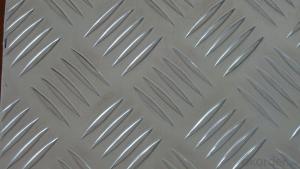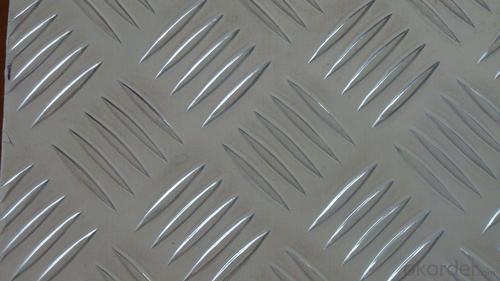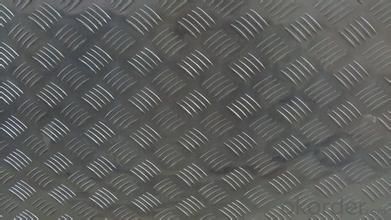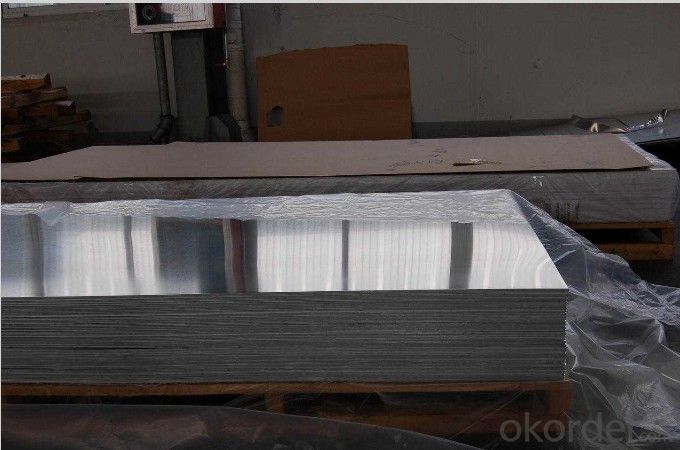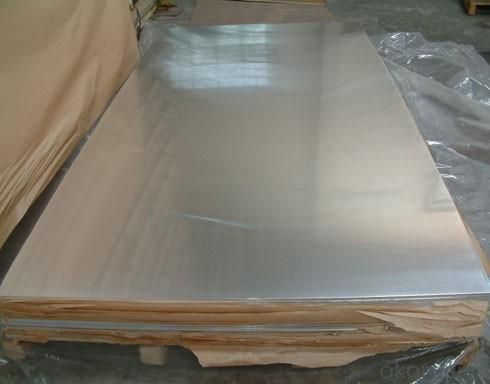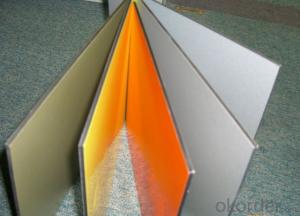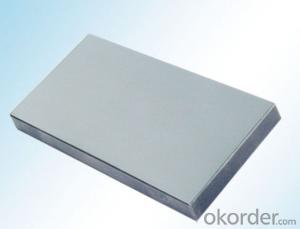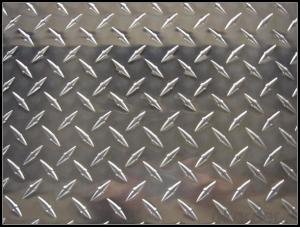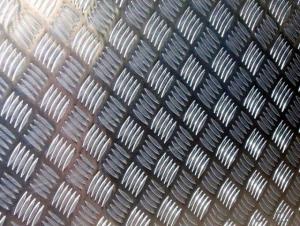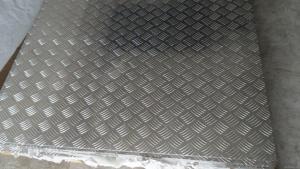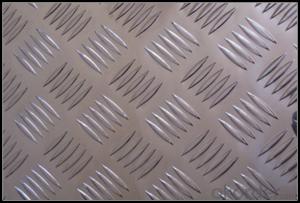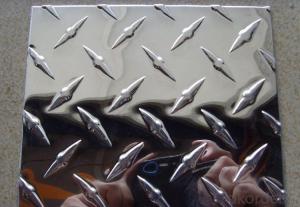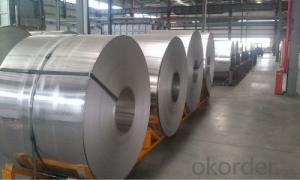Aluminum Sheets Utah - 1050 1060 1100 3003 5052 5 Bar Aluminum Tread Plate
- Loading Port:
- Shanghai
- Payment Terms:
- TT OR LC
- Min Order Qty:
- 8 m.t.
- Supply Capability:
- 10000 m.t./month
OKorder Service Pledge
OKorder Financial Service
You Might Also Like
Specification
aluminum chequered plate are widely usd for bus, cars and shipping vessel as the floor....
Aluminum tread plate is also called anti-slide aluminum sheet which is widely used in manufacturing vehicles, ships, washing machines, refrigerator shell, etc.
Specification:
Denomination | Final application | Temper | Thickness | Width | Inner diameter | Outside |
diameter | ||||||
Semi-rigid container foil | Food container applied in aviation | 3003/8011--H22,H24,O | 0.02-0.09 | 300-600 | 76/152 | 100-600 |
Household foils | Soft packing in household | 8011--O | 0.01-0.02 | 200-700 | 76 | 200-800 |
Pharmaceutical foil | Packing for Blister foil | 8011--H18 | 0.020-0.025 | 400-1100 | 76/152 | 760 |
Cable foil | Wraping for cable | 1100/8011,O | 0.15-0.05 | 500-800 | 76 | 760 |
Aluminum fin stock | Hear exchanger and condensator for A/C | 8011--H24,O | 0.1-0.13 | 400-1000 | 152 | 760 |
Cigarette foil | Packing for cigarette | 1235--O | 0.0065-0.007 | 460,520 | 76 | 400 |
Foil for hot seal | Hot seal cover for acidophilus milk and other beverage | 1235/8011--O | 0.02-0.038 | 400-600 | 76 | 760 |
Thick foil for deep processing | Seal for beer bottle | 1145/8011,O | 0.0115 | 300-600 | 76/152 | 400/760 |
Shield for video cable | 0.01-0.012 | 500 | 76 | 400 | ||
Aluminum adhesive tape | 0.2-0.06 | 300-600 | 76/152 | 400/760 | ||
Thin foil for deep-processing | Foil with thickness less than ten micron applied in surface of packing materials | 8011/1235--O | 0.0065-0.007 | 460-1000 | 76 | 400 |
Foil for automobile radiator | Water tank radiator in automobile | 8011/1050--H18 | 0.08-0.10 | 140-600 | 76 | 760 |
Packing:
One roll in an individual box or printed PP bag
Certain quantities in a standard carton
Depends on customer’s request
Service
1. We have the good and professional team, have a good after-sales service.
2. Accept any drawings or your samples to develop new product.
3. Offer relateive technical support,quick response,all your inquire will replied within 24 hours.
4. OEM, buyer design, buyer label services provided.
5. Have the certification of ISO 9001, SGS.
6. Special discount and protection of sales area provided to our distributor.
FAQ
Q1:Do you provide sample? How many days will samples be finished?
Free samples will be provided if needed, but customers should undertake shipping cost or freight charges, samples will be finished in 5-7days
Q2: Can we visit your factory?
Welcome to our factory at any time.
Q3: Complaint solving process
Finding your salesman—Salesman provide you the solution (If it’s our responsibility, we will resend substitutes or return money or provide discount for your next order, etc.; If it’s shipping company’s responsibility, we will also help you until the problem is resolved.) —If salesman can’t solve your problem, please call our manager .
Q4: Delivery time
3~30working days after confirming the payment. If the order is urgent, we will push our workers to finish in advance.
Q5: What's your MOQ?
Normally 8MT are requested as the minium order quantity ,we shall give
additional instructions in special circumstances.
Q6: What are the terms of payment and currencies do you accept?
T/T or L/C is accepted, currently we appreciated your payment through
USD,EUR, RMB
Q7: Do you accept customized orders?
Yes, we do. Your customized orders are always welcomed. Please kindly offer us your samples or drawings, so that we can customize the products according to your preferences. About any further detail, please feel free to contact us.
Q8: What information should I let you know if I want to get a quotation?
Your detailed requirements regarding the products's dimensions, including shape, thickness, top out (length*width*height), and your order quantity are highly appreciated if you want further information about our quotation
Q9: How about the mass production?
The lead time of mass production depend on quantity, usually 25-30days (20FT) .
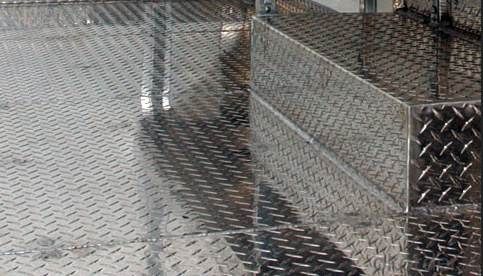
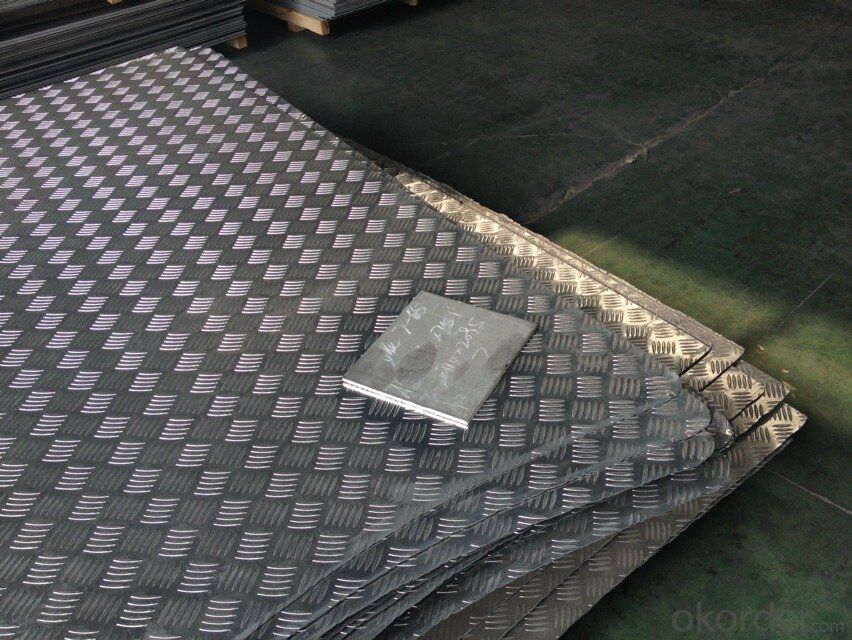
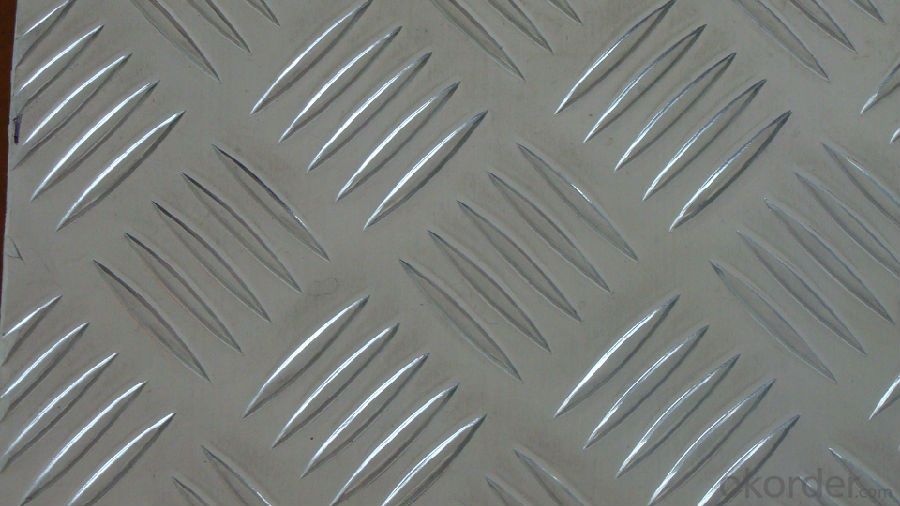
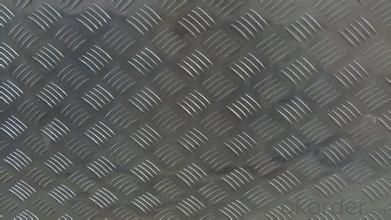
- Q: Are the aluminum sheets suitable for manufacturing electronic enclosures?
- Indeed, aluminum sheets are well-suited for the production of electronic enclosures. The reason for aluminum's popularity in this regard lies in its remarkable combination of strength, durability, and lightness. Moreover, its capacity for conducting electricity effectively qualifies it for dissipating the heat generated by electronic components. Furthermore, aluminum sheets can be effortlessly molded, shaped, and machined to meet the precise specifications of electronic enclosures, thereby allowing for personalized and adaptable designs. Additionally, its ability to resist corrosion renders it suitable for safeguarding electronic devices against environmental elements. In summary, aluminum sheets offer the perfect material solution for the manufacturing of electronic enclosures.
- Q: What is the bending radius for aluminum sheets?
- The bending radius of aluminum sheets may vary depending on the sheet's thickness and alloy. In general, thinner sheets (around 1-3 mm) should have a bending radius of approximately 1.5 times their thickness. On the other hand, thicker sheets (over 3 mm) can increase the bending radius to around 2.5 times their thickness. Nevertheless, it's important to bear in mind that these are general guidelines and the bending radius may need to be adjusted according to the specific application and desired outcome. To obtain accurate bending radius information, it is always recommended to seek advice from a professional or consult the manufacturer's technical data sheets.
- Q: What are the different types of aluminum sheets available in the market?
- The market offers a variety of aluminum sheets, each with unique characteristics and applications. Some of the most common types are: 1. Plain Aluminum Sheet: Widely used and fundamental, this type is known for its excellent corrosion resistance and high strength-to-weight ratio. It finds applications in construction, automobile manufacturing, and aerospace industries. 2. Painted Aluminum Sheet: These sheets are coated with paint to enhance aesthetics and protect the underlying aluminum from environmental elements. They are commonly used in architecture, signage, and decorative purposes. 3. Perforated Aluminum Sheet: This type features perforations or holes throughout its surface. It is often used in architectural projects, industrial filtration systems, and ventilation applications. 4. Embossed Aluminum Sheet: These sheets have a textured or patterned surface created through embossing or rolling. They are frequently used for decorative purposes, like interior design, signage, and packaging. 5. Anodized Aluminum Sheet: Through an electrochemical process, a protective oxide layer forms on the surface of the aluminum. Anodized sheets are highly resistant to corrosion and abrasion, suitable for outdoor applications like building facades and automotive parts. 6. Tread/Diamond Plate Aluminum Sheet: This type has raised diamond or tread patterns on its surface, providing enhanced grip and traction. They are commonly used in transportation, flooring, and staircases. Furthermore, aluminum sheets are available in various thicknesses, sizes, and alloys, such as 3003, 5052, and 6061. The specific type required depends on the intended use and project requirements.
- Q: aluminum is 2.82x10^-8 ohm-m
- Aluminum with the same resistance as 50 meters of copper. (Resistance) = (Resistivity)(Length/Area) So if the resistivity changes by (2.82/1.72), then the length changes by (1.72/2.82). So the length of aluminum would be 50m(1.72/2.82) Length of aluminum would be 30.5 meters
- Q: What are the different methods of forming aluminum sheet?
- There are several methods of forming aluminum sheet, each with its own advantages and limitations. 1) Rolling: This is the most common method used to manufacture aluminum sheet. It involves passing aluminum ingots through a series of rolling mills that gradually reduce the thickness of the metal until the desired sheet thickness is achieved. Rolling is highly versatile and can produce sheets with precise thicknesses and a wide range of sizes. 2) Extrusion: In this method, a heated aluminum billet is forced through a die to produce a continuous sheet. Extrusion is commonly used to produce sheets with complex cross-sectional shapes and consistent thickness. It is particularly suitable for producing aluminum sheets with a consistent pattern or texture. 3) Casting: Casting involves pouring molten aluminum into a mold and allowing it to solidify. This method is often used to produce large aluminum sheets with irregular shapes or intricate designs. However, the thickness of cast aluminum sheets may not be as consistent as those produced by rolling or extrusion. 4) Stretch forming: In stretch forming, a sheet of aluminum is clamped around its edges and stretched over a die to achieve the desired shape. This method is commonly used to produce curved or contoured aluminum sheets, such as those used in automotive or aerospace applications. 5) Spinning: Spinning is a process where a rotating disk or mandrel is pressed against a sheet of aluminum to shape it into a desired form. This method is commonly used to produce cylindrical or conical aluminum sheets, such as those used in lighting fixtures or cookware. 6) Deep drawing: Deep drawing involves placing a flat sheet of aluminum into a die and using a punch to force the metal into the desired shape. This method is commonly used to produce aluminum sheets with deep, cup-like shapes, such as those used in beverage cans or automotive parts. Overall, the choice of method for forming aluminum sheet depends on the desired shape, thickness, and complexity of the final product, as well as the production volume and cost considerations.
- Q: Are aluminum sheets suitable for medical equipment?
- Yes, aluminum sheets are suitable for medical equipment. They are lightweight, durable, and have high corrosion resistance, making them ideal for various medical applications such as surgical instruments, diagnostic equipment, and prosthetics.
- Q: How thick are aluminum sheets commonly available?
- Aluminum sheets commonly come in various thicknesses, depending on the intended use and application. The most commonly available aluminum sheet thicknesses range from 0.025 inches (0.63 mm) to 0.125 inches (3.18 mm). However, thinner and thicker aluminum sheets are also available, with some going as thin as 0.016 inches (0.4 mm) and others as thick as 0.25 inches (6.35 mm) or more. The specific thickness required will depend on the specific project or industry application.
- Q: What advantages does the ceramic panel curtain wall have compared with the aluminum sheet and stone curtain wall?
- Metal plate curtain wall deformation resistance is poor, the plate strength and steel are not high enough, waterproof sealing performance is not good enough, easy to fade, deformation, also can cause light pollution. Construction and installation technical requirements are relatively high.Stone curtain wall is now used most, but more stereotyped, and negative news constantly, stone fell, heavy stones, high-rise building exterior wall of high risk, poor fire performance.
- Q: how to distinguish the physical property of copper sheet from the one of aluminum sheet?
- physical property: copper sheet: golden, heavy, aluminum sheet: white, light.
- Q: Are the aluminum sheets suitable for manufacturing consumer goods?
- Indeed, consumer goods can be manufactured using aluminum sheets. This material possesses qualities of being lightweight, durable, and easily moldable, allowing for the creation of diverse shapes and sizes. Its remarkable resistance to corrosion renders it perfect for items that may face moisture or harsh environments. Moreover, aluminum stands out as an environmentally conscious choice due to its high recyclability. The attractiveness, sturdiness, and adaptability of aluminum sheets render them an exceptional choice for producing consumer goods, including kitchen utensils, appliances, furniture, packaging materials, and automotive components.
Send your message to us
Aluminum Sheets Utah - 1050 1060 1100 3003 5052 5 Bar Aluminum Tread Plate
- Loading Port:
- Shanghai
- Payment Terms:
- TT OR LC
- Min Order Qty:
- 8 m.t.
- Supply Capability:
- 10000 m.t./month
OKorder Service Pledge
OKorder Financial Service
Similar products
Hot products
Hot Searches
Related keywords
